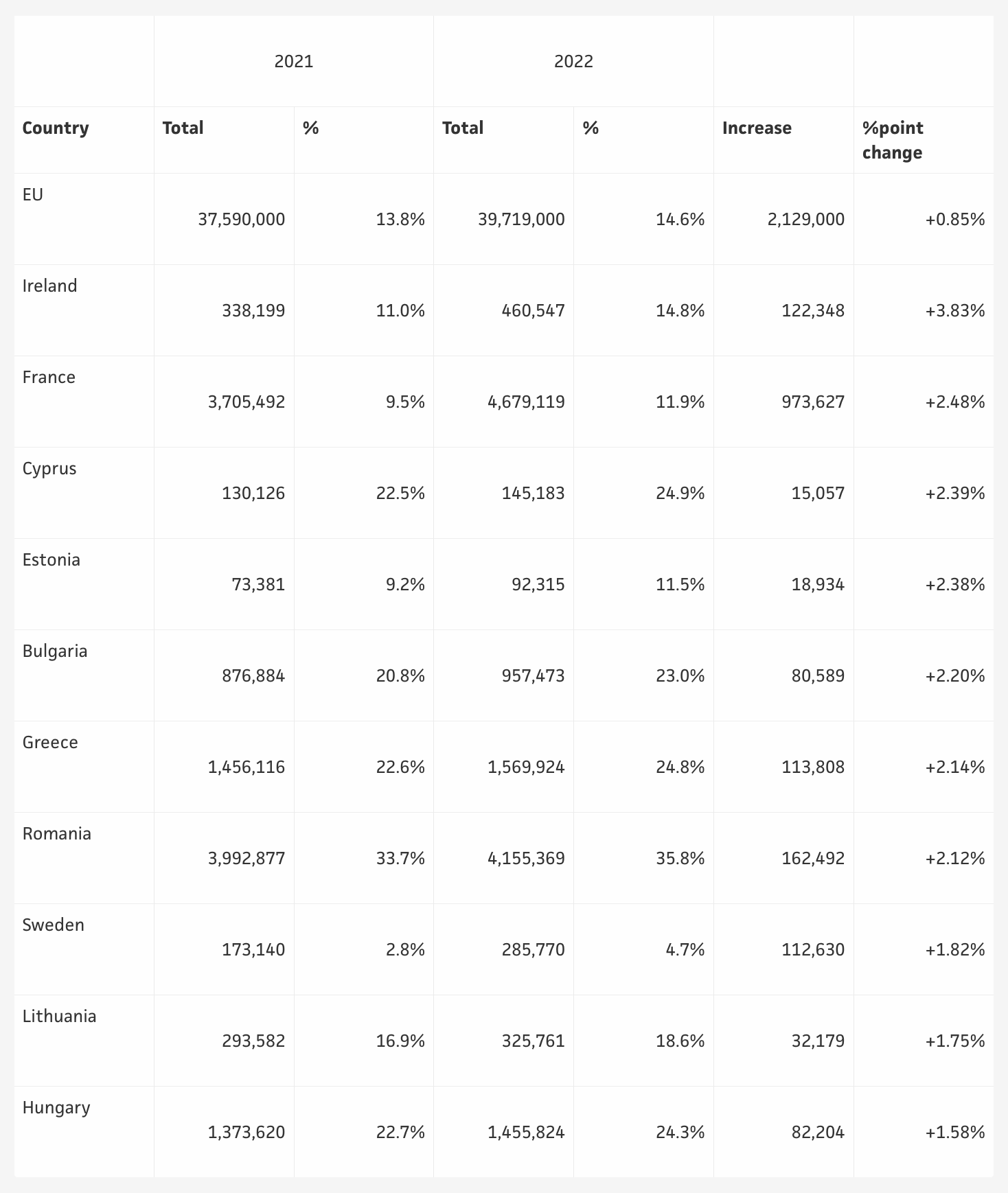
'These figures show how social progress is being reversed with economic inequality,' ETUC says

An estimated 39.7 million working people in Europe cannot afford a week's holiday, either in their own country or abroad, according to data from the European Trade Union Confederation (ETUC).
This is equivalent to 15% of all working people in Europe, and an increase of more than two million people from the 37.6 million in 2021.
Esther Lynch, ETUC general secretary, said the growth in the number of working-class families who could afford a holiday was one of Europe's great social advances of the 20th century.
"These figures show how social progress is being reversed as a result of increased economic inequality," Lynch said in a statement.
The largest increase in the proportion of working people unable to afford a holiday was recorded in Ireland, with a 3.83% rise in those affected.
The biggest increase in holiday poverty in terms of the number of people was in France, where 973,627 workers cannot afford a holiday.
Despite a decrease, Italy registered the highest number of workers who cannot afford a break, recording a total of 6,074,387.
Meanwhile, the countries with the highest share of workers who can't afford a holiday include Romania (36%), Cyprus (25%), and Greece (25%).
Source: European Trade Union Confederation
"Too many people are no longer seeing the benefits of Europe's powerful economy in their everyday lives," Lynch said.
"We urgently need to raise the levels of workers covered by collective bargaining agreements. It is the best way of ensuring a working people receive a fair share of the wealth they create and can enjoy something as basic a week’s holiday rather than just struggling to survive."